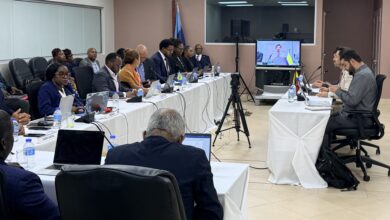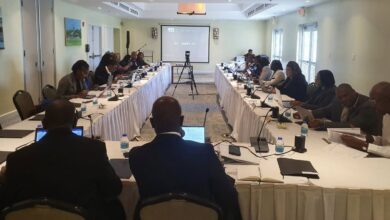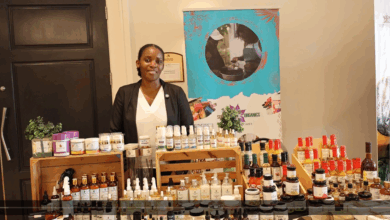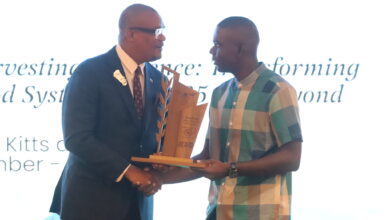Today’s dawning of the year 2000 puts us on the very doorstep of the much- heralded 21st Century and Third Millennium. Not so long ago, these milestones in time were seen as distant landmarks in man’s progress. Today, they are all but here and so are many of the futuristic fantasies associated with the 21st Century. But many of these may not have been as we had perceived them.
For example, many of you may have done your Christmas shopping via electronic commerce; many of you may have consumed genetically modified products; all of us have seen that scientists have gone even beyond cloning to the scientific creation of a living organism; Information Technology (IT) and in particular, e-mail communication, has grown to the extent of being considered almost standard. Indeed, to be without an e-mail address is perhaps likely to be the 21st century criterion of a vagrant!
All of us are aware of the dramatic worldwide change in weather patterns, the evidence of which has been seen in the havoc wreaked in neighbouring Central America and Venezuela and latterly, in Europe. Perhaps, this heralds the arrival of the coming global superstorm so dramatically forecast by Art Bell and Whitley Strieber in their recent book of the same name.
Some of these phenomena are among those once considered to be fantasies of the future. They are phenomena that we must now confront if we are to face up effectively to the challenges of the 21st Century.
Your Caribbean Community is also changing. With Haiti’s entry, its population is no longer six, but 15 million. The majority no longer speaks English as Haiti’s seven million plus population exceeds the combined six million of the English-speaking countries and Suriname’s 400-odd thousand Dutch-speakers.
There is also no longer merely a Community and Common Market. CARICOM is well on its way to becoming a Single Market and Economy – that is, a single economic space. This means, among other things, that in that space, not just the output of production (goods and services), but also the factors of production – skilled labour and capital – will be able to move freely throughout the Community in response to market opportunities.
Your Community has therefore not remained static in structure. It has had to create structures and mechanisms and adopt new modalities to respond to changing circumstances. It is in that vein that it has created, for example, a specialised mechanism, the Regional Negotiating Machinery (RNM), to undertake the current spate of international and hemispheric trade negotiations to which the economic fate of the Region, income and job creation, is so closely tied.
Similarly, the Community has committed itself to the early establishment of a Caribbean Court of Justice.
Last October, returning to the cradle of the integration process – Chaguaramas – the Heads of Government decided that more effective mechanisms and modalities had to be found to achieve the objective of the urgent advancement of the integration process as we enter this new century. The importance and the urgency of this advancement in the process of regional integration has led the Heads of Government to agree to intensify their focus on regional matters by assigning to each Leader responsibility for spearheading the progress in a particular vital element of the integration process.
They also recognised that the achievement of the overall objective requires greater inclusion of all segments of the society. Therefore, they agreed that the private sector, labour, political opposition, NGOs and the wider civil society generally, must be brought more fully ‘on board’ in the regional integration process and that the Year 2000 must see definite progress in this direction.
To that end, they decided that a conference under the theme of Forward Together, a consultation on the implementation of the CARICOM Single Market and Economy, and a special Conference on Cricket are initiatives to which the Community is committed for the year 2000.
These activities will enter onto an already tight agenda all round. The Heads of Government themselves meet in St Kitts and Nevis in the first quarter for their Eleventh Inter-Sessional Meeting, also the venue of the Seventh Caribbean Festival of the Arts (CARIFESTA), scheduled for August. Heads will again meet in St Vincent and the Grenadines in July, for the 21st Regular Session of the Conference of Heads of Government. All of these activities come amidst scores
of other important regional meetings involving the four specialised Ministerial Councils and other bodies of the Community, as well as a number of international meetings of importance to the Region.
The many initiatives proposed, however, are likely to yield maximum fruit only if they are designed and implemented against the backdrop of a wider Caribbean canvas, one which provides space for participation by those countries not yet within the integration process such as Cuba and the Dominican Republic and for closer co-operation with the other Member countries of the Association of Caribbean States (ACS). It is against this background and in a context of closer co-operation among the various regional institutions in support of a political directorate, prepared to take a quantum leap in providing for more substantive involvement of the wider civil society in decision-making and implementation, that the countries of the Region, as small states, can hope to successfully confront the challenges of the 21st century.
All the evidence before us suggest that the many challenges confronting the Region, – the likely spin-off of the Seattle Debacle, the climatic disasters, the scourge of illicit drugs, the pervasive acts of criminality, the persistent rise in the incidence of HIV/AIDS, in other words, the environment both natural and man-made, require resolute action by the people of the Region if we are to secure our place in the much-heralded new millennium. It is not a matter to be left to any single segment of our Caribbean society – it calls for total Caribbean commitment, and notably that of the youth.
In welcoming this particular New Year, therefore, we will all do well to recognise that the responsibility is that of all of us, individually and severally, and pledge to discharge it. As Secretary-General of the Community, on my own behalf and on behalf of the staff of the Secretariat, I make bold that pledge.
Happy New Year and God’s Blessing on us all.





